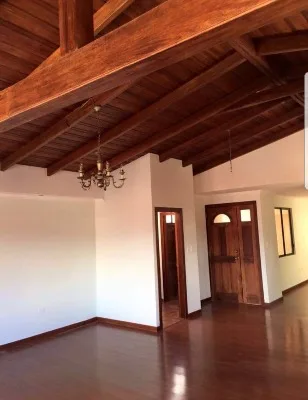Locals complaining about foreigners: It’s common practice in Cuenca and other migrant destinations
By Jay Allison
Over the past 20 years, my wife and I have lived in four locations with large immigrant populations — Northern New Jersey, the coast of Costa Rica, San Miguel de Allende, Mexico, and Cuenca — and have become intimately familiar with complaints natives make about foreigners.
make about foreigners.
By far the strongest of those complaints I’ve heard were in New Jersey, made by U.S. citizens against Latin American immigrants, many of them Ecuadorians. I heard that the foreigners were overwhelming social services intended for residents of New Jersey. I heard that immigrant children were over-crowding in the schools. I heard that the foreigners were not interested in learning “American ways,” and not making a serious attempt to learn English.
As it turns out, study after study show that Latin Americans do, in fact, pay their own way for social and educational services in the U.S.
In Costa Rica and San Miguel de Allende, I also heard complaints, but those were made by Costa Ricans and Mexicans about the North American expats. These too, were that the foreigners were not trying hard enough to join the broader community and learn the language. In addition, however, they complained about the arrogance and bad behavior of North Americans and what they thought was an expectation that they, the North Americans, should receive preferential treatment because of the financial investments they were making to the community.

Expats in Costa Rica.
Today in Cuenca, I still hear some of the same complaints, but they are less frequent and less angry than the ones I heard in Mexico and Costa Rica. My wife, who was born in Quito, hears more of them but agrees with me that there are less in Cuenca.
My first point is that it is important to look at the problem in context. The impact of foreigners on their adopted countries is a worldwide issue, whether it’s Latin Americans moving to the U.S. or U.S. or European citizens moving to South America or the coast of Spain. A bigger problem, actually a crisis, are the mass migrations of Middle Easterners, Africans and now Venezuelans to other countries.
My second point is that the intercultural problems between expats and Cuencanos are mild in comparison to those in many other North American expat communities in Latin America — and in such places a northern New Jersey, where transplants from Latin America and other countries are referred to as immigrants or refugees, not expats.
There are reasons for this, mostly that Cuenca is a community of 600,000 people, able to absorb immigrants from many countries, not just from the U.S. and Canada. According to Cuenca’s Office of Foreign Affairs, there 12,000 North Americans and Europeans living in the city.
The big news recently, of course, has been the influx of Venezuelans, escaping deteriorating conditions back home, estimated to number at least 20,000, straining public and private social services. My wife follows comments and local social media and talk radio programs and tells me that complaints about expats have been mostly replaced with ones about Venezuelans.
It is important to recognize that most North American expats are here legally and that one of their first obligations is to follow the laws of Ecuador. When expats use local health care services and claim tax refunds, for example, they do this legally and should not be criticized for it. The Cuencanos who complain should take the matter up with their elected officials if they want to change the laws.
On the other hand, I have seen many examples of bad behavior on the part of foreigners, tourists as well as expats. To a large extent, expats can do something about this by counseling the offenders, reminding them that their behavior is offensive to the local population. Cultural education never ends, after all.
It is important that expats and locals make a greater effort to engage with each other, to discuss problems and seek solutions. This too is a never-ending process.
_________________
Jay Allison is a former librarian and high school teacher from New Jersey. He and his wife have lived in Cuenca for six years.






















